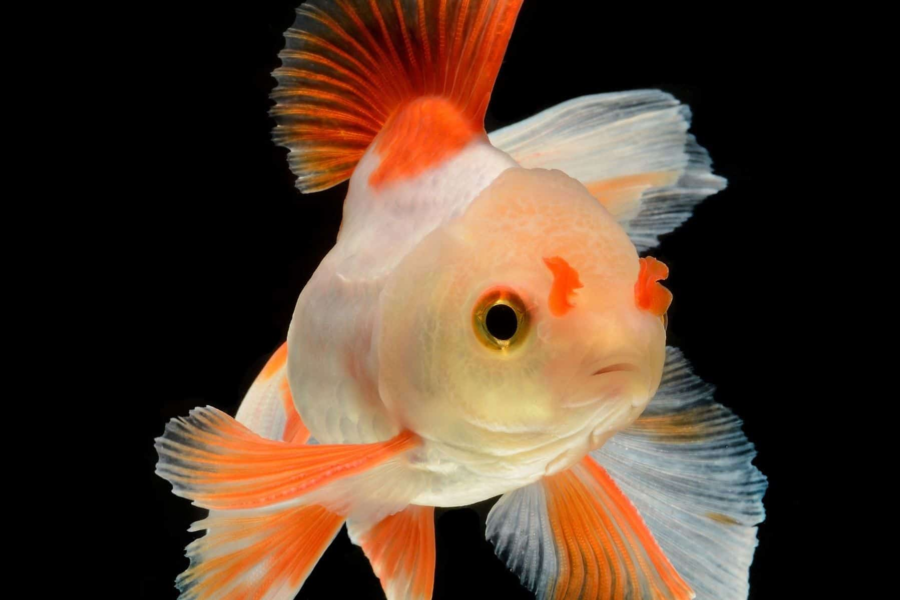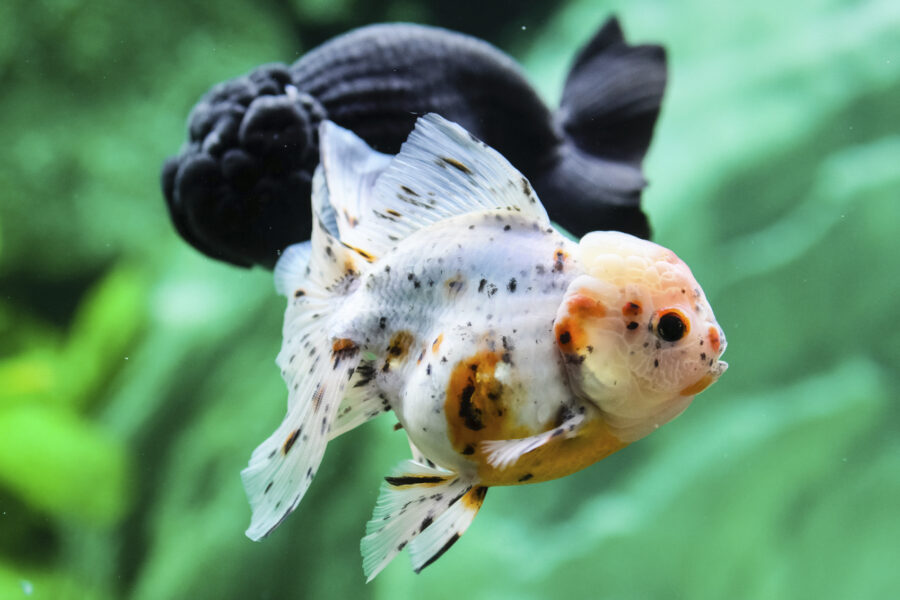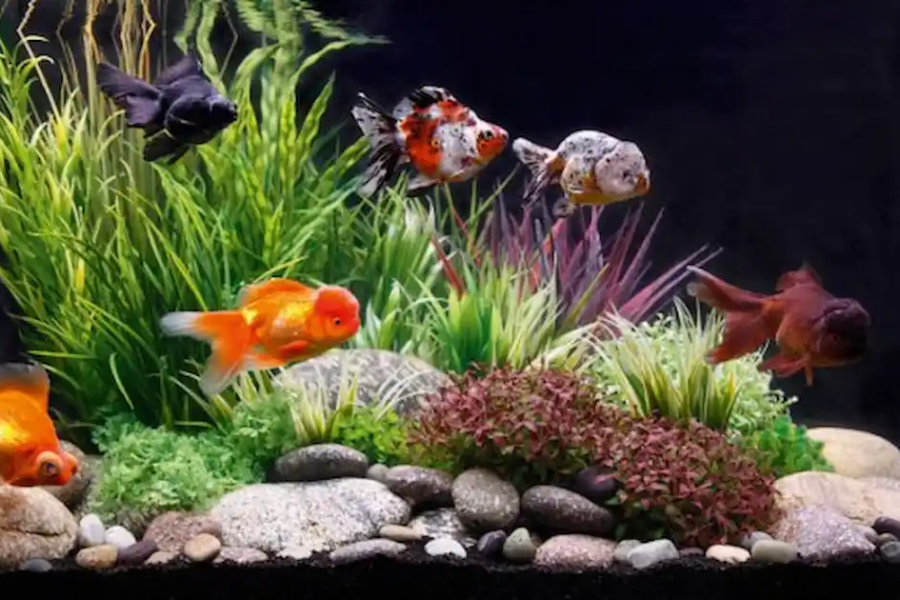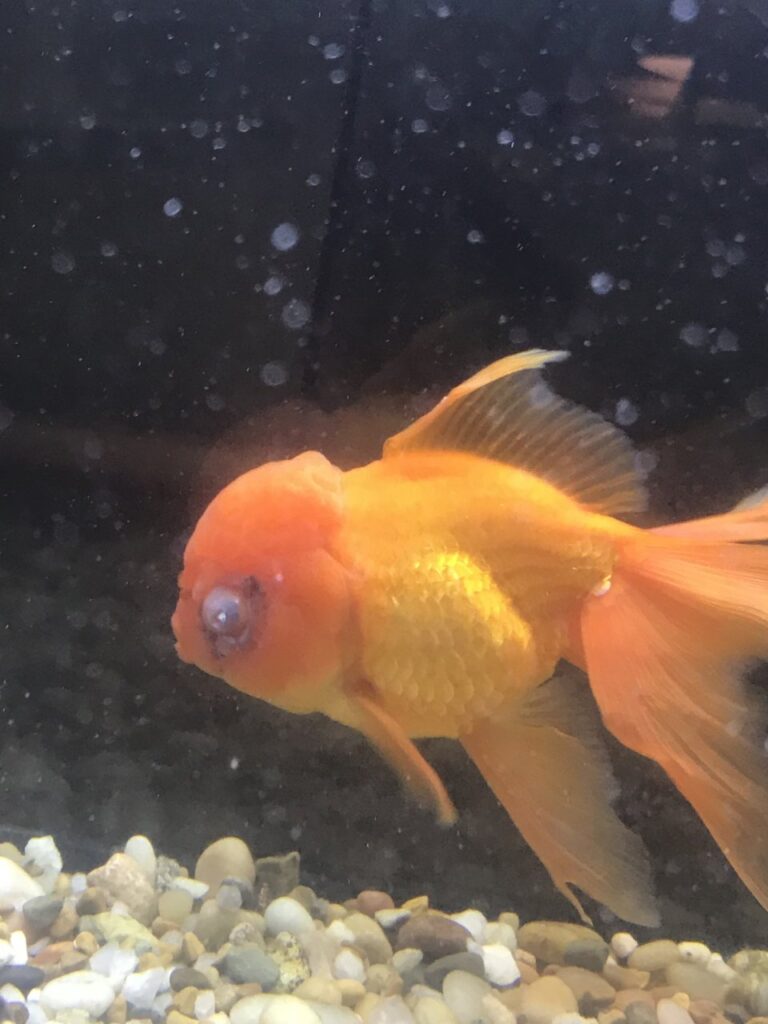
Welcome to the enigmatic realm of “Cloudy Eye in Goldfish!” This whimsically titled condition is not just a quirk in name but also a puzzling matter for many aquatic aficionados. In this enlightening guide, we’ll dissect the reasons behind this mystifying ailment.
Journey with us through the murky depths of common misconceptions, identify the tell-tale signs, and determine if this phenomenon truly clouds our understanding or if there’s clarity beneath the surface. Ready to plunge into this aquatic mystery? Strap on your diving gear, and let’s unravel the secrets!
The Cloudy-Eyed Goldfish Phenomenon
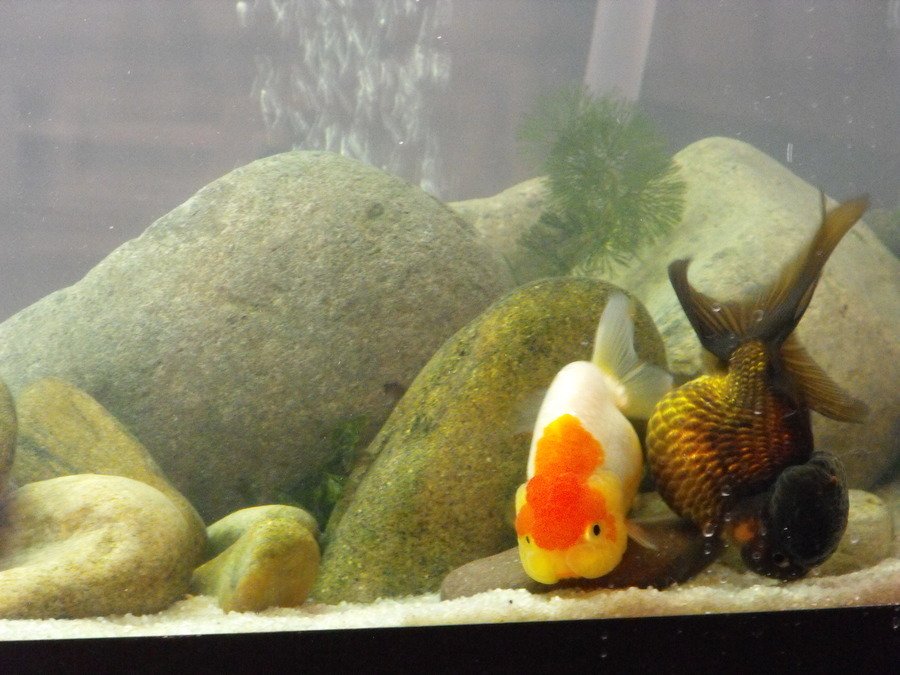
Welcome, dear reader! We’re diving nose-first into the curious case of Cloudy Eye in our golden little friends. Isn’t it intriguing?
What is the Cloudy Eye Syndrome
Wait, what?! Cloudy Eye Syndrome? Sure, it sounds like something out of an aquatic horror movie, but it’s actually a common issue that goldfish face. The name itself is enough to paint a picture – it’s a condition where our goldfish buddies get a cloudy or opaque covering over their eyes. It’s kind of like they’re wearing foggy goggles underwater. Fun, huh? Not really.
Public Opinion on the Condition
Now, let’s dip our toes into the public’s pool of opinion. Many believe Cloudy Eye is a symptom of poor fishkeeping. Ouch! But remember, even the best of us can face minor hiccups. Keep your fins up and remember, it’s an opportunity to learn and grow as a goldfish guardian.
As we swim towards the next section, let’s remember that the health issues our finned friends face mirror the challenges we as humans often encounter. It’s the combination of finding and diagnosing issues, and fostering a support system to aid recovery that makes it all so astonishingly relatable. Up next – the elusive causes of this mysterious cloudy film. Exciting, right? Let’s go!
Causes of Cloudy Eye in Goldfish
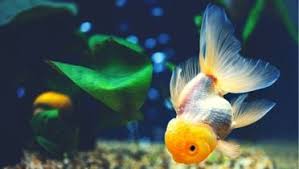
Behind every problem, there lies an igniter. Below, we will dive into some of the most common issues that spark the misty-eyed ordeal for our golden friends.
How Water Quality Affects Goldfish
Here’s the tea… or maybe water? You see, water quality is like the air we breathe. If goldfish could Freeway sing, they’d be hitting “Water Quality” high notes, no doubt. When the water is dirty, the chances of your goldfish developing Cloudy Eye shoots up. High ammonia, nitrite levels, and low oxygen content can dirty the musical scores and hit the wrong notes for your goldfish’s health.
Hang in there as we paddle more profound into the murky waters to unveil some more murky facts.
The Role of Infections
Infection plays a monstrous role in causing the cloudy-eyed issue. Bad bacteria are like uninvited guests at a party, messing things up. For this party crasher, the buffet is your poor goldfish’s eyes. Depending on which evil bacteria is nibbling away, your fish might experience bacterial or fungal infections, leading to the cloudy-eye crisis.
You’re doing great. Keep those fins steady as we transition into the next stop.
Impact of a Poor Diet
Feeding your fish wrongly is like offering junk food to a bodybuilder — completely counterproductive. A poor diet missing essential nutrients can stress your goldfish and weaken its immune system, making it susceptible to our not-so-friendly monster guest, cloudy eye.
And that’s a wrap.
We’ve successfully navigated the haze origins, but remember every cloud (or foggy eye) has a silver lining. As we transition into the next section, we’re about to reveal some ways this condition can rear its ugly head.
Identifying a Cloudy Eye in Goldfish
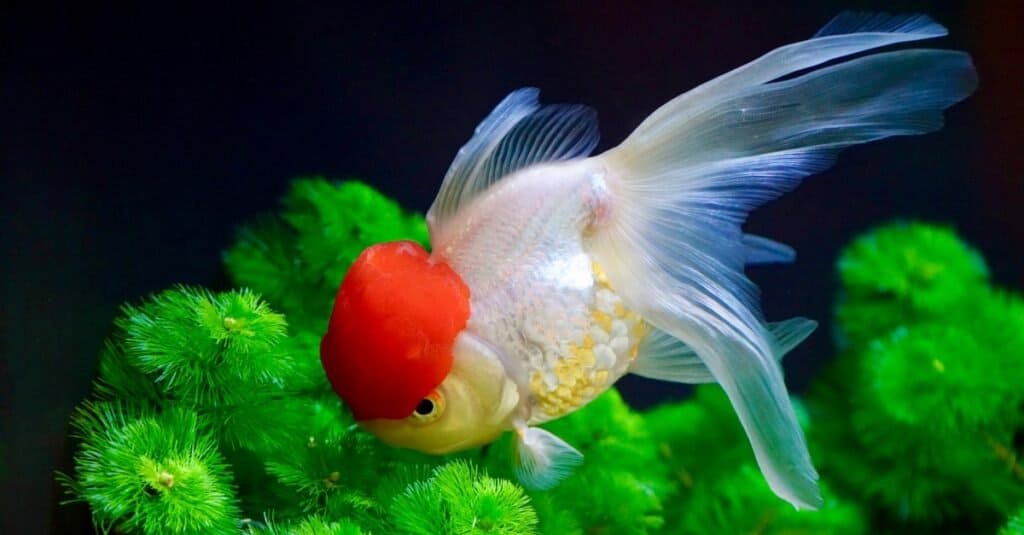
Just how do you spot a cloudy-eyed goldfish? Well, it’s easier than catching a greased pig at a county fair. I’ll walk you through the signs!
Symptoms of Cloudy Eye in Goldfish
A cloudy-eyed goldfish can’t exactly tap on the glass to tell you it’s not feeling its best. Still, they do give signals. From noticeable cloudiness over the eyes to a reduction in movement and lack of appetite. Heck, if they could sing, they’d probably belt out “it’s a hard-knock life!”
Keep an eye out for those cloudy eyes. Literally.
Unusual Behavior of a Goldfish
Goldfish are party animals of the underwater world, constantly on the move. When they suddenly halt their aquatic jig or ignore their food, something’s up. Also, they might always stay at the corner of the tank, looking listless and floaty. No, it’s not the fish version of a time-out, it’s a silent plea for help!
A cloudy-eyed goldfish might not send out an SOS, but if you pay attention, you’ll catch the cues. And with the right treatment, they’ll be back in the swim of things. Now, let’s look at how long this condition might stick around, kind of like that annoying neighbor who won’t take a hint. On to the prognosis of cloudy eye!
The Prognosis – Is It All Haze and Daze?

Expected Duration of the Condition
Flash news, dear goldfish-enthusiast! No need to don detective gear trying to estimate the lifespan of Sherlock, your goldfish (assuming you’ve named him so). Just like how your cold doesn’t hang around forever, neither does the Cloudy Eye condition. Typically, with the right treatment, we should wave bye-bye to it in around two weeks. If it’s lingering like an unwelcome party guest, you’ve got a tough cookie, and it’s time to involve a fish vet (yes, they exist!).
Like your fish in its clean tank, let’s dive into the topic that always makes you a little anxious – goldfish’s lifespan and how Cloudy Eye affects it.
Effect on Goldfish’s Lifespan
Buckle up, buddy! Cloudy Eye doesn’t really have a significant impact on your goldfish’s lifespan – woo-hoo! Assuming that you’re taking care of the issue promptly, your fishy friend should swim merrily for its average lifespan of 10-15 years. High five, Sherlock!
As we swim to the next section, let’s take a moment. It’s always comforting to know that you have options to treat your scaly friend when things get little blurry. Flex those fins and let’s swim into the nitty-gritty of treatments for our Cloudy Eye friends next, shall we?
Treating Your Goldfish
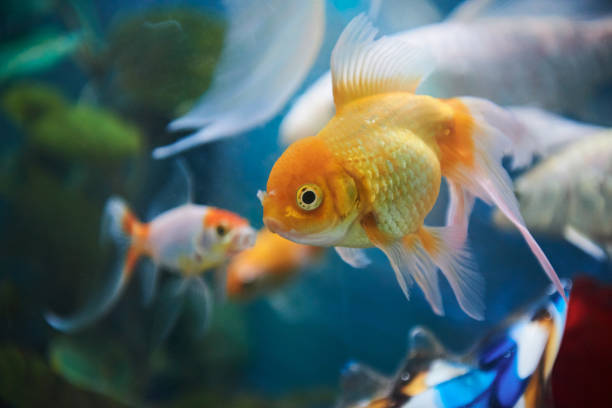
It’s time to roll up your wizard sleeves and dive right into the medicinal pond of goldfish treatment. First, we will splash around in the shallow waters of home remedies. Then, we will plunge deeper into seeking professional intervention. Let’s figure out how to uncloud those cute little peepers so they can continue exploring the aquatic wonderland you’ve created for them.
Home Remedies for Cloudy Eye
Like a seasoned kitchen chemist, you’ll be concocting healing elixirs right at home! The first stop is the water-quality-fix express. Just boost that pH to 7.0. Perfectly balanced, as all things should be. Add some aquarium salt. This isn’t your regular table salt; it’s imbued with healing powers for our golden friends. In another way, Melafix also is one of the best ones to treat Cloudy Eye. Melafix is a natural remedy made from tea tree extract, well-loved in the fish-keeping community for its healing properties.
Next, let’s invite the army of good bacteria. Invest in a biological filter to give a warm welcome to these little soldiers. They will take care of uninvited unpleasantries that might cause infections.
Remember, the magic rule of ‘clean but not too clean.’ Overcleaning can disrupt the healthy bacteria community. It’s like telling the hard workers at the party to leave early. Not cool at all, right?
When to Seek Professional Help
You’ve tried the home remedies, gave your all, but the little swimmer’s eyes remain overcast (cue sad violin music). It’s time to tag in the professionals. Aquatic vets are the mysterious superheroes to our water-loving friends. They’ll conjure up the right antibiotics or administer the effective eye drops.
But remember, diligent goldfish parents – never attempt to play a fish doctor without proper consultation. It’s a bit like trying to do a pirouette when you’ve only ever danced the Macarena.
In the next section, we’ll swim into the calm waters of prevention. Because preventing cloudy eye is always better than having to treat it. Goldfish agree, bubbles of approval guaranteed.
Prevention is Better Than Cure
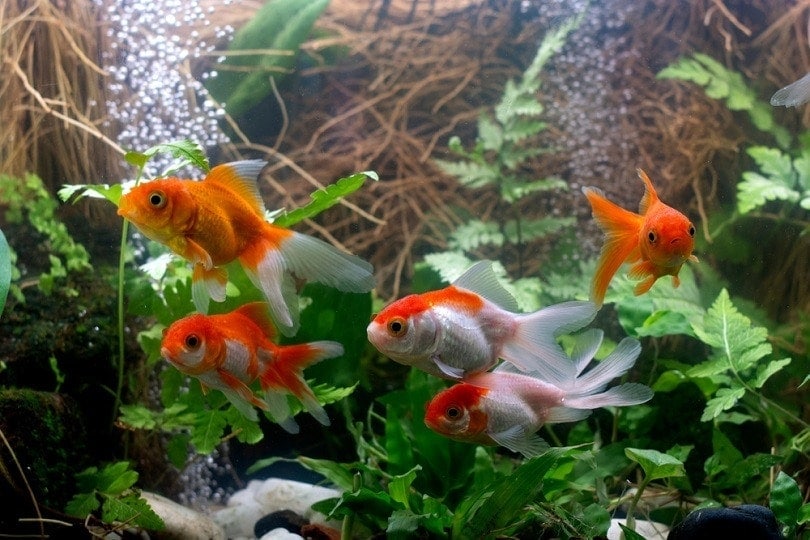
We’ve learned that our goldfish pals can get quite a blot on their resume with cloudy eye. But hey, prevention is always better than cure right? Let’s dive into a clear crystal tank of prevention measures.
Maintaining a Clean Tank
Imagine you’re living in a floating garbage heap. Sounds fishy (pun intended), right? The same goes for your goldfish. Clean water is the school principal of fish health.
Carry out regular water changes and remove waste and uneaten food. To you, they might seem as appealing as leftover pizza from last week, but to your goldfish, it’s a whole different story. Invest in a good quality filter; think of it as a cleaning fairy for your fish tank. But if you’re looking to take your aquarium upkeep to the next level, check out The Complete Guide to Aquarium Maintenance.
Now you’ve got clean, pristine water. But hold your fishing rods, there’s more.
The Importance of a Balanced Diet
The secret recipe for a not-cloudy-eyed goldfish is a balanced diet. Think of it as your fish’s power platter. Too much, too little, or the wrong food, and your goldfish could start developing those ‘foggy’ symptoms we’ve been discussing.
Feed your fish a variety of high-quality flakes, pellets, and live foods. Sort of like the sushi, steak, and salad in fish world cuisine. Hungry for more insights? Dive into Discover the Best Foods for Your Goldfish, 5 Best Diet Foods for Your Goldfish, and The Best Frozen Foods for Goldfish Nutrition for a deeper look into their dietary delights.
All ‘scaled’ up on goldfish diet? Great. Now onto the last leg of our prevention journey.
Regular Health Check-Ups for Fish
Yes, you heard it right. Fish checkups. Regular observations can catch a cloudy eye before it becomes a thunderstorm.
Look out for unusual behavior. Is your goldfish swimming weirdly? Are they not eating as eagerly as before? These could be early signs of cloudy eye.
Now that you know cloudy eye is avoidable, with just a bit of extra care and attention, your goldfish will be as ‘glittery’ as ever.
Wrap Up
Cloudy-eye syndrome in goldfish, a condition both mystifying and concerning, often stirs public debate. However, managing this fishy fogginess isn’t as scary as it may seem. With adequate water quality, a balanced diet and a keen eye for signs, you can keep your goldfish in a healthy, haze-free state.
Remember, it’s a lot simpler to prevent the haze than treating it. Diligent tank cleaning, diet monitoring, and regular health checks could be your goldfish’s secret to a long, crystal-eye life. If the cloudiness persists, don’t hesitate to seek professional help. Your goldfish might not thank you in words, but its clear, vibrant eyes will say it all.
Frequently Asked Questions (FAQ)
Question: What is cloudy eye in goldfish?
Answer: Cloudy eye is a common condition in goldfish, where a white or gray haze covers their eyes. It signals poor water quality, infections or bad diet.
Question: Can poor water quality cause cloudy eyes in goldfish?
Answer: Absolutely. Poor water quality can lead to bacterial or fungal growth, causing infections that can result in cloudy eyes.
Question: What are the symptoms of cloudy eyes in goldfish?
Answer: Besides the obvious cloudy appearance of the eyes, goldfish may also exhibit unusual behavior such as decreased activity levels, loss of appetite, and bumping into objects.
Question: Does cloudy eye affect a goldfish’s lifespan?
Answer: If left untreated, cloudy eye can negatively impact a goldfish’s health and potentially decrease its lifespan.
Question: Can I treat cloudy eye at home?
Answer: Yes, some home remedies can help, like improving the water quality, feeding a good diet, and administering over-the-counter treatments. However, for severe cases, it’s best to seek professional help.
Question: How can I prevent cloudy eye from happening again?
Answer: Regular tank cleaning, balanced diet for goldfish, and regular health check-ups can help prevent the recurrence of the cloudy eye condition.

